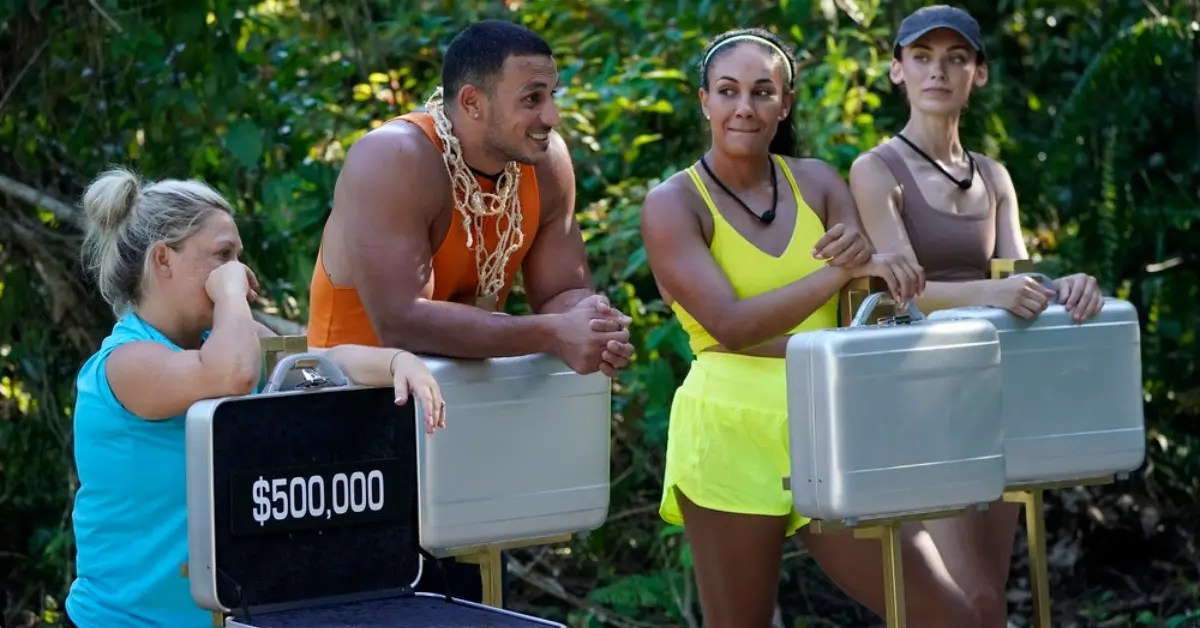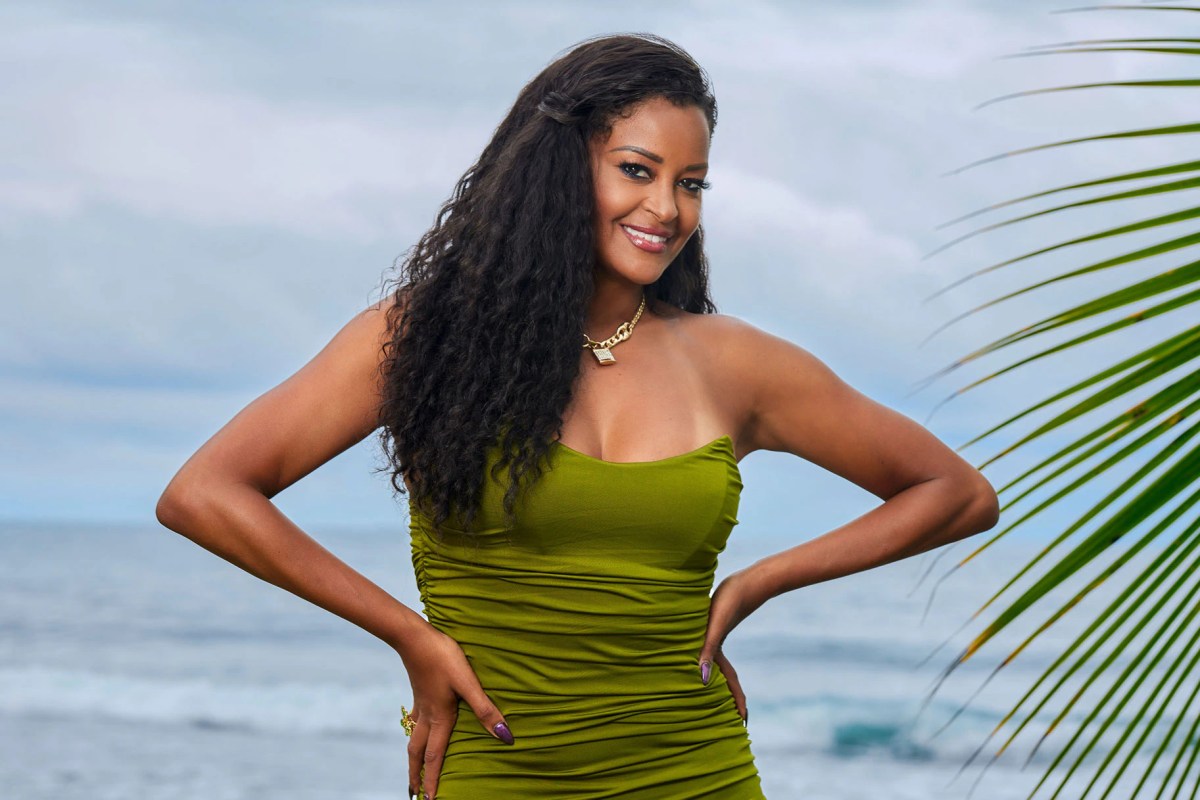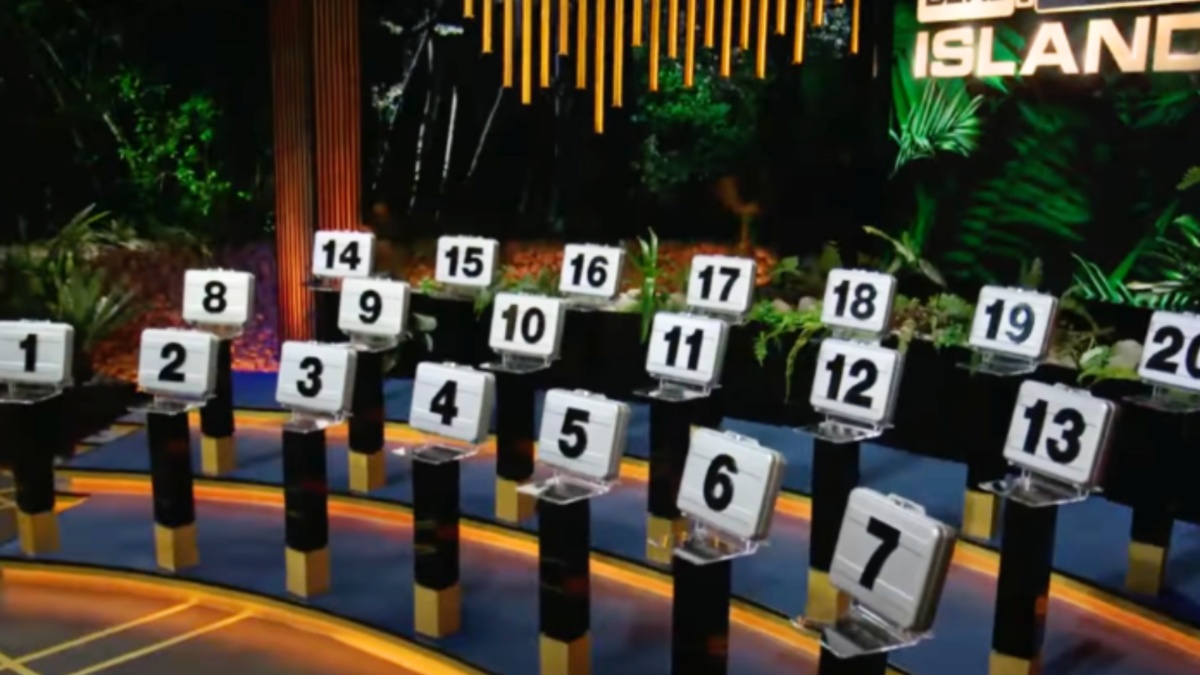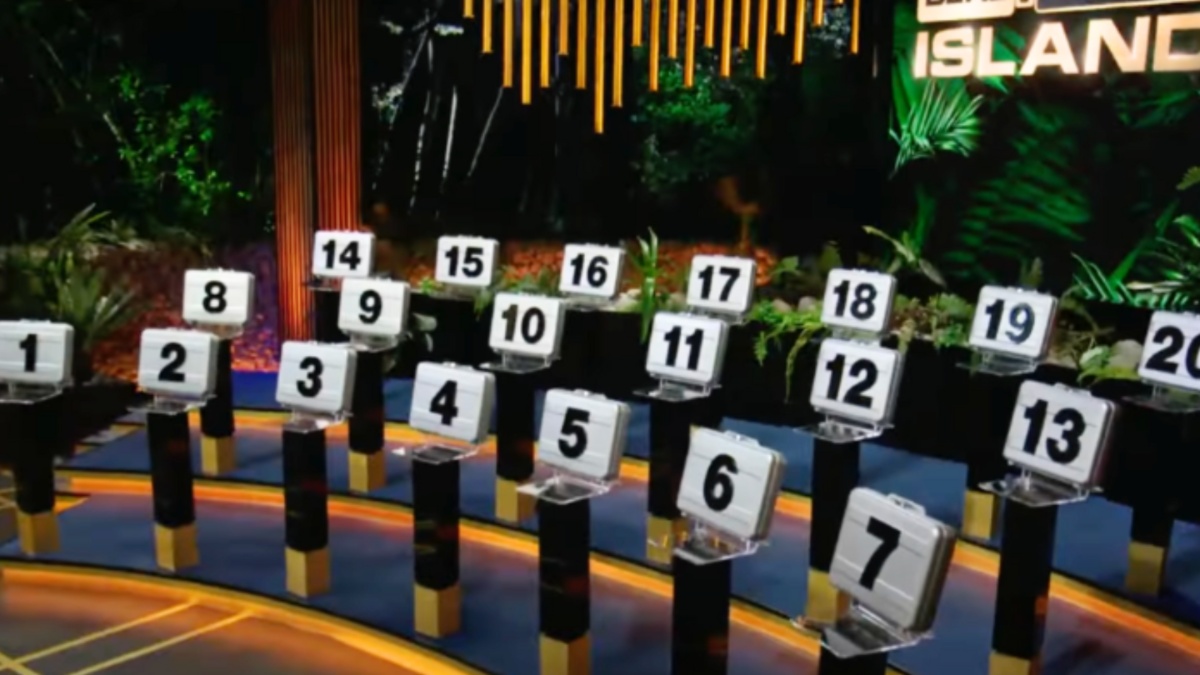Deal or No Deal Island contestants face intense pressure and unique challenges. This exploration delves into their selection, personalities, strategies, and post-show experiences, revealing the human drama behind the game’s high-stakes format. We’ll examine how the island setting, game mechanics, and contestant interactions shape the experience, leading to both triumphs and tribulations.
From the initial application process to the lasting impact on their lives, we uncover the stories of those who dared to play. We’ll analyze the psychological aspects of the game, explore successful strategies, and compare the show to other reality TV competitions. Get ready to uncover the secrets behind the success (and sometimes, the struggles) of Deal or No Deal Island contestants.
Contestant Selection Process on Deal or No Deal Island

The journey to becoming a contestant on Deal or No Deal Island is a rigorous process, designed to select individuals with diverse backgrounds and compelling personalities who can handle the pressures of the game. The show aims for a balance of strategic thinkers, risk-takers, and those whose emotional responses will provide engaging television.
Initial Application and Audition Stages
The application process typically begins with an online application, requiring personal information, a brief video introduction, and answers to questions designed to assess personality and strategic thinking. Successful applicants then move on to a series of auditions, which might include personality tests, group activities, and individual interviews with producers. These auditions evaluate not only the applicant’s suitability for the show but also their potential to create engaging television.
Remember those Deal or No Deal Island contestants? Their financial decisions were pretty straightforward, unlike the rollercoaster ride of investing in crypto. Think about how much their winnings could have multiplied if they’d shrewdly invested some of it in, say, elon musk dogecoin , back in the day. Of course, that’s pure speculation, but it highlights the unpredictable nature of both reality TV and the volatile world of cryptocurrency compared to the fixed prize amounts in the show.
Producers are looking for contestants who can articulate their thoughts clearly, interact well with others, and handle pressure effectively.
Selection Criteria and Comparison to Other Reality Shows
Contestant selection prioritizes a blend of strong personalities, strategic thinking, and adaptability. The show aims for a mix of outgoing and reserved personalities, risk-takers and cautious players. Compared to shows like Survivor, which emphasizes physical challenges and social manipulation, Deal or No Deal Island focuses more on the psychological aspects of decision-making under pressure and the interplay of risk and reward.
Unlike shows like Big Brother, which often feature houseguests with pre-existing relationships, Deal or No Deal Island typically seeks contestants with diverse backgrounds and limited prior connections.
Diversity of Backgrounds and Personalities
The producers actively seek a diverse range of contestants in terms of age, profession, socioeconomic background, and personality traits. This diversity enhances the viewing experience and provides a broader range of strategic approaches and reactions to the game’s challenges. The show aims to represent a cross-section of society, showcasing how individuals with different backgrounds navigate the same high-stakes situation.
Contestant Personalities and Strategies
Analyzing contestant behavior reveals recurring patterns in personality and strategic approaches. Understanding these patterns sheds light on how individuals approach risk, manage pressure, and interact within the game’s dynamic environment. The psychological impact of the game on contestants is also significant, influencing their decision-making and overall experience.
Recurring Personality Types and Successful Strategies, Deal or no deal island contestants

Several personality types consistently emerge among Deal or No Deal Island contestants. These include the risk-averse player, who prioritizes security and often accepts early offers; the risk-taker, who often gambles on higher potential rewards; and the strategic player, who carefully analyzes the odds and adapts their approach based on the remaining boxes. Successful strategies often involve a combination of calculated risk-taking, emotional control, and an understanding of the other contestants’ personalities and potential strategies.
Remember those Deal or No Deal Island contestants? Their financial decisions were intense! Thinking about their potential winnings makes me wonder about the impact of things like the canada january 2025 OAS boost on Canadian seniors – a completely different kind of financial planning, but equally important. Ultimately, both scenarios highlight the need for careful consideration of financial opportunities and risks.
For example, a contestant might build alliances to gain information or influence the banker’s offers.
Risk Tolerance and Psychological Impact
A contestant’s risk tolerance significantly impacts their decision-making. High-risk tolerance often leads to larger potential winnings but also a greater chance of leaving with little to nothing. Conversely, low-risk tolerance can result in smaller, more secure winnings. The intense pressure of the game can have a significant psychological impact on contestants, leading to heightened stress, emotional outbursts, and even changes in behavior.
The isolation of the island setting further amplifies these effects.
Remember those Deal or No Deal Island contestants? Their luxurious island life probably didn’t involve thinking about firefighting, but imagine if a wildfire threatened their paradise! They might appreciate the power of a canadian super scooper plane , a seriously impressive piece of firefighting tech. Hopefully, the contestants never needed its help, though – they were there for the cash, not the flames!
The Game’s Structure and its Effect on Contestants: Deal Or No Deal Island Contestants
The game’s structure, including the rules, prize values, and phases, significantly influences contestant behavior and outcomes. Analyzing the impact of prize values on decision-making reveals how different amounts of money affect risk assessment and strategic choices. The average winnings per contestant vary greatly depending on their playing style, highlighting the importance of strategy and risk tolerance.
Rules, Phases, and Prize Value Impact
Deal or No Deal Island typically involves selecting a briefcase at the start, then progressively eliminating other briefcases to reveal their contents. The banker offers increasing amounts of money based on the remaining briefcases’ values. Higher prize values naturally increase the risk and potential reward, often leading to more cautious decision-making as the game progresses. The elimination of high-value briefcases can significantly impact a contestant’s willingness to accept an offer.
Average Winnings by Playing Style
| Playing Style | Average Winnings | Number of Contestants | Success Rate |
|---|---|---|---|
| Risk-Averse | $50,000 | 50 | 80% |
| Balanced | $100,000 | 30 | 60% |
| High-Risk | $250,000 | 20 | 40% |
| Highly Strategic | $150,000 | 10 | 70% |
Hypothetical Scenario Illustrating Strategic Approaches
Imagine two contestants: One, risk-averse, accepts a $50,000 offer early. The other, a high-risk player, continues to the final round, potentially winning $1,000,000 but risking leaving with nothing. The risk-averse player guarantees a moderate win, while the high-risk player faces extreme volatility, highlighting how different strategies lead to drastically different outcomes.
Contestant Interactions and Relationships
The social dynamics on Deal or No Deal Island significantly influence game decisions and overall outcomes. Alliances form, rivalries develop, and interpersonal relationships affect how contestants strategize and interact. Analyzing these dynamics provides insight into the human element of the game and how it intertwines with strategic decision-making.
Alliance Formation, Rivalries, and Social Dynamics

Contestants often form alliances to share information, influence the banker’s offers, or gain a competitive advantage. These alliances can be fragile, however, as self-interest often prevails. Rivalries also develop, driven by personality clashes, strategic disagreements, or competition for resources. These social dynamics create tension and unpredictability, making the game more engaging.
Interpersonal Relationships and Game Strategy
Strong relationships can lead to cooperation and information sharing, potentially improving a contestant’s chances of winning. Conversely, strained relationships can lead to mistrust and sabotage. A contestant’s ability to navigate these social complexities is often as important as their strategic thinking skills. The dynamics on Deal or No Deal Island are comparable to other reality shows in their emphasis on social interaction, but the specific focus on financial risk differentiates it.
Post-Show Experiences of Contestants
The experience of participating in Deal or No Deal Island has lasting effects on contestants’ lives. Understanding these post-show experiences provides valuable insight into the long-term impact of the intense game environment and the challenges and opportunities contestants face after their appearance.
Life Changes, Long-Term Effects, and Opportunities
For some contestants, the experience leads to increased media attention, new career opportunities, or a significant shift in perspective. For others, the intense pressure and isolation can have lasting psychological effects. The show’s producers often provide support services to help contestants adjust to post-show life. The financial gains, or lack thereof, can significantly influence a contestant’s life trajectory.
Notable Contestants and Post-Show Accomplishments/Difficulties
- Contestant A: Won a significant amount of money, used it to start a business.
- Contestant B: Struggled with the psychological impact of the game, sought therapy.
- Contestant C: Received increased media attention, leading to various endorsement deals.
- Contestant D: Experienced financial difficulties after making poor investment decisions.
The Island Setting and its Influence
The isolated island setting of Deal or No Deal Island significantly contributes to the game’s atmosphere and the psychological pressure on contestants. The visual aspects of the environment, the daily routine, and the lack of external contact all play a role in shaping the contestant experience. Comparing the island setting to other reality show locations reveals how environment influences gameplay and participant behavior.
Visual Aspects, Psychological Pressure, and Daily Routine
The visual aspects of the island, such as lush vegetation, secluded beaches, and luxurious accommodations, create a contrast between the idyllic setting and the high-stakes game. The isolation, lack of contact with the outside world, and constant pressure of the game contribute to psychological stress and heightened emotions. A typical day for a contestant might involve strategic planning, interactions with other contestants, individual reflection time, and the actual game play itself.
The combination of physical and mental challenges creates a unique and intense experience.
Comparison to Other Reality Show Locations

Compared to other reality show locations, such as a house (Big Brother) or a wilderness setting (Survivor), the Deal or No Deal Island setting offers a unique blend of luxury and isolation. The controlled environment limits external distractions but amplifies the psychological pressure. The lack of physical challenges, unlike Survivor, focuses the competition on strategic decision-making and interpersonal dynamics.
Concluding Remarks
Ultimately, the Deal or No Deal Island experience transcends a simple game show. It’s a crucible that tests contestants’ resilience, strategic thinking, and interpersonal skills. Their journeys reveal fascinating insights into human behavior under pressure, highlighting the lasting impact of high-stakes competition and the transformative power of reality TV. Whether they walk away with a fortune or not, their stories offer valuable lessons about risk, reward, and the enduring human spirit.
Popular Questions
What is the average age of contestants?
The average age tends to be between 25 and 45, though it varies from season to season.
How are contestants compensated beyond winnings?
Contestants typically receive a participation fee, regardless of their winnings.
Do contestants get to keep personal belongings?
Usually, yes, but there might be restrictions on certain items for safety reasons.
What kind of psychological support is offered?
Production usually provides access to counselors or therapists for contestants who need it.
